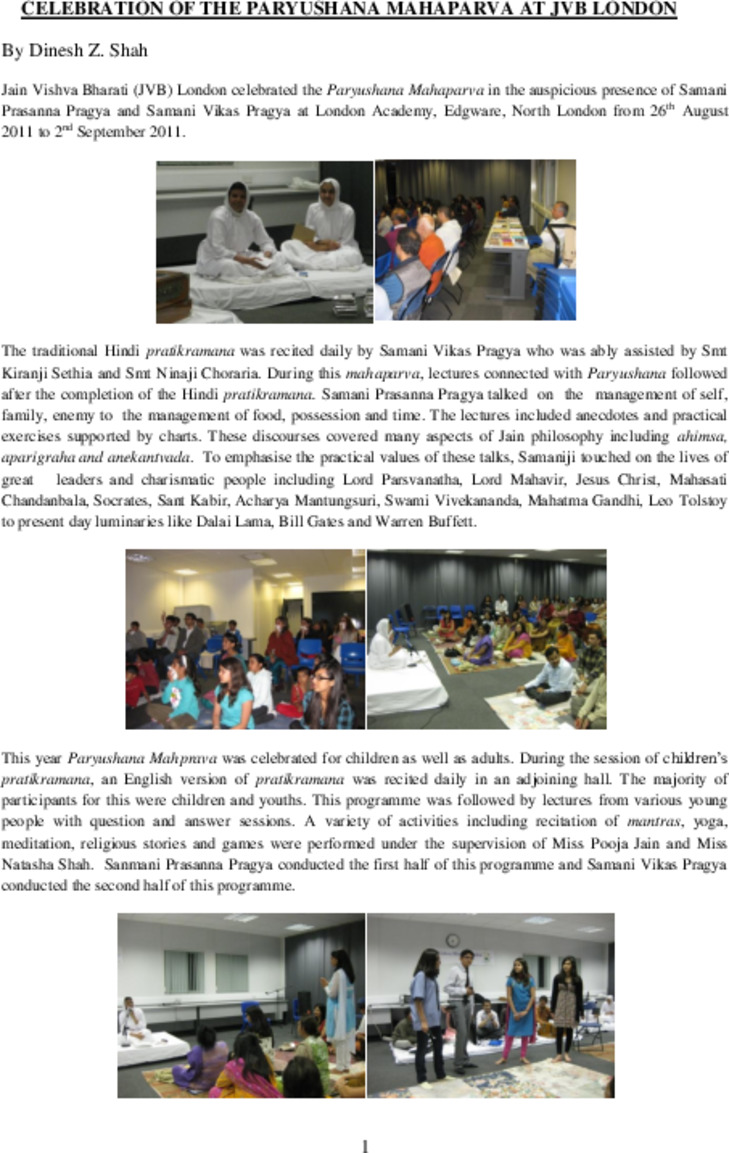 | |
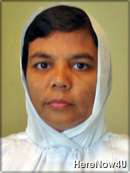 | 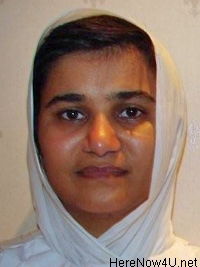 |
| Samani Prasanna Pragya | Samani Vikas Pragya |
Celebration Of The Paryushana Mahaparva At JVB London
Jain Vishva Bharati (JVB) London celebrated the Paryushana Mahaparva in the auspicious presence of Samani Prasanna Pragya and Samani Vikas Pragya at London Academy, Edgware, North London from 26th August 2011 to 2nd September 2011.
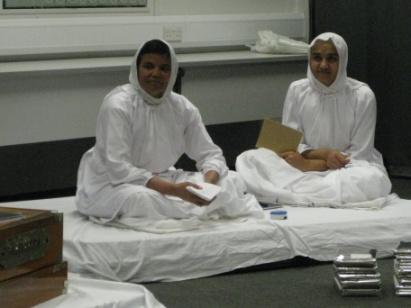
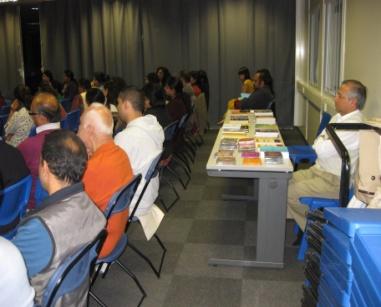
The traditional Hindi pratikramana was recited daily by Samani Vikas Pragya who was ably assisted by Smt Kiranji Sethia and Smt Ninaji Choraria. During this mahaparva, lectures connected with Paryushana followed after the completion of the Hindi pratikramana. Samani Prasanna Pragya talked on the management of self, family, enemy to the management of food, possession and time. The lectures included anecdotes and practical exercises supported by charts. These discourses covered many aspects of Jain philosophy including ahimsa, aparigraha and anekantvada. To emphasise the practical values of these talks, Samaniji touched on the lives of great leaders and charismatic people including Lord Parsvanatha, Lord Mahavir, Jesus Christ, Mahasati Chandanbala, Socrates, Sant Kabir, Acharya Mantungsuri, Swami Vivekananda, Mahatma Gandhi, Leo Tolstoy to present day luminaries like Dalai Lama, Bill Gates and Warren Buffett.
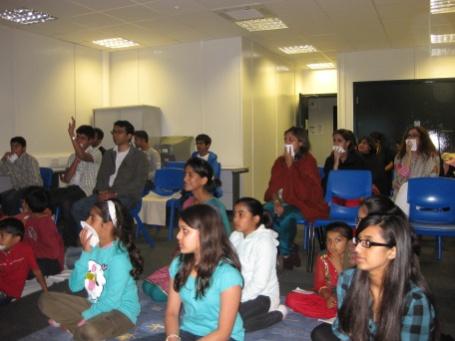
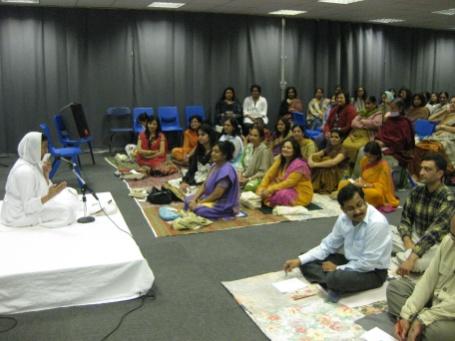
This year Paryushana Mahprava was celebrated for children as well as adults. During the session of children’s pratikramana, an English version of pratikramana was recited daily in an adjoining hall. The majority of participants for this were children and youths. This programme was followed by lectures from various young people with question and answer sessions. A variety of activities including recitation of mantras, yoga, meditation, religious stories and games were performed under the supervision of Miss Pooja Jain and Miss Natasha Shah. Sanmani Prasanna Pragya conducted the first half of this programme and Samani Vikas Pragya conducted the second half of this programme.
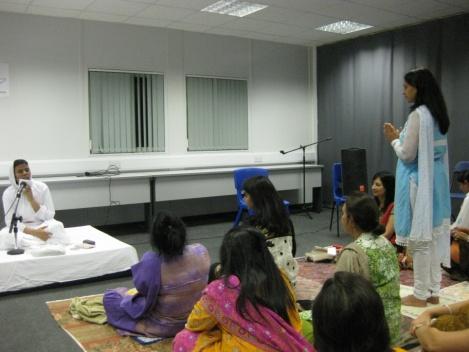
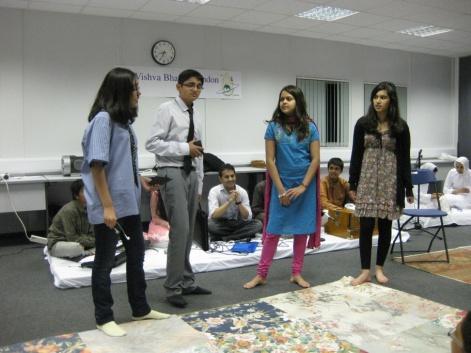
Samani Prasanna Pragya stated that for a person to achieve success and fulfilment, it is essential to overcome four kashayas- anger, greed, ego and deceit. She emphasised that we have to be more patient and tolerant in order to coexist with our fellow human beings. Late Acharya Mahapragya states in his book, “Economics of Lord Mahavir” that if we curtail our desires, reduce our needs, our demands will automatically subside.
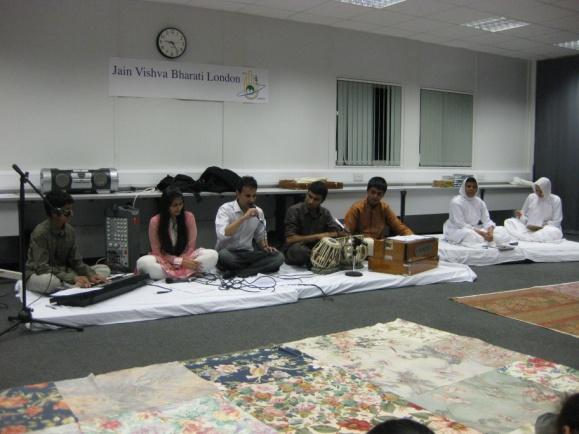
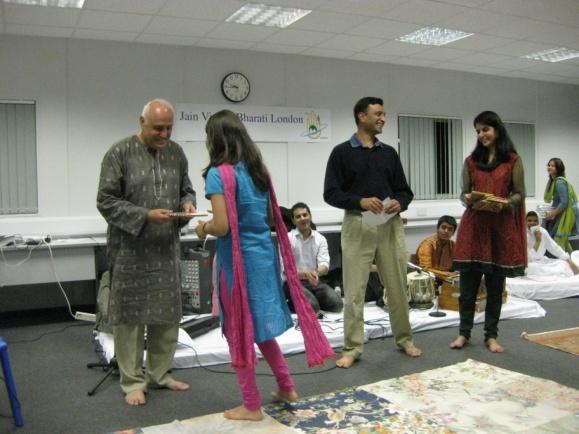
In her talk on time management Samani Prasanna Pragya, reminded the audience that Jainism attaches a lot of importance to the value of time. Quite a few activities performed by Jains are time bound. Lord Mahavir in Uttaradhyayana Sutra tells Gautam Swami:
“SAMAYAM GOYAM MA PAMAYAE” (Do not waste even a single moment) and “KHANAM JANAHI PANDIYA)” (Those who value time are knowledgeable and wise).
Samaniji explained the importance of food management for staying close to the soul, shedding of karmas and controlling passions. She said there is now greater acceptance of the aphorism, “YOU ARE what YOU EAT”.
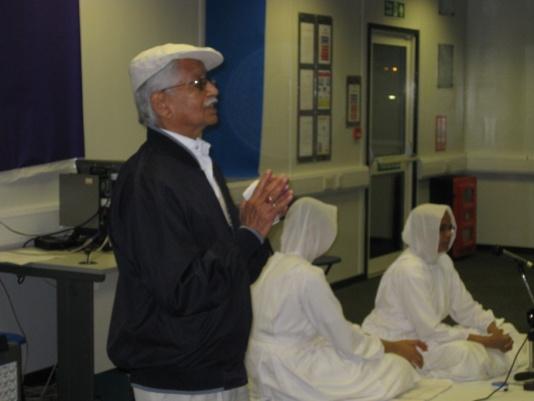

On the fifth day of Paryushana Mahaparva, after the recitations of pratikramans, children of JVB Gyan Shala performed a skit exemplifying the instilling of sanskar. This was well received by the audience bearing in mind the limited time the children had to prepare. A programme of bhakti followed which was led by Saggar Malde, Jelna and their group. The singers were supported by artists on tabla, keyboard and harmonium. The audience was left spellbound by the evocative singing of the bhajans and the accompanying music. At the beginning of the programme Samani Prasanna Pragya explained to the congregation the importance of bhakti in our daily lives. She cited examples of Meerabai’s devotion to Lord Krishna and Hanumanji’s longing for Lord Ram’s darshan. As a token of appreciation, all the actors and artists received gifts in the form of books on behalf of JVB London.
A member of the audience was chosen to give a vote of thanks every day before the recitation of mangal path by the samanijis at the end of the programme.
On Friday, 2nd September, Samvatsari Praikramana was performed which included the recitation of forty “Logassa Sutra”. This sutra is recited in kayotsarga posture for the purpose of repentance and thereby shedding of karmas. A programme of kshamayachana followed. Samani Vikas Pragya then guided the shravaks and shravikas to carry out collective forgiveness. Samani Vikas Pragya sang in Hindi a hymn composed by Late Acharya Tulsi on the theme of friendship and universal love.
Samani Prasanna Pragya gave a short talk on the importance of forgiveness. She stated that there are four steps of forgiveness which are as follows:
- We do not scold our offender/enemy;
- We have to forget offender’s/enemy’s offence;
- We have to think about the wellbeing of our offender/enemy;
- We should have no ego about carrying out the above process of forgiveness.
Shree Mangilalji Baid who is a resident in the United Kingdom for over fifty tears and who had known Late Achraya Tulsi and Late Acharya Mahapragya gave in Hindi a short personal insight into Jain dharma. Shree Pravinbhai Mehta who came to study in the United Kingdom over fifty years ago from Uganda talked briefly about his experience of his first darshan of Acharya Mahpragya.
Samani Vikas Pragya recited a song on tapasaya and this was followed by an appreciation of tapasavis which included many students from the JVB Gyan Shala. Miss Pooja Jain and children appreciated their fellow tapasavis.
Smt Harshidaben Mehta, President of East London Bhagini Mandal talked about Samani Prasanna Pragya’s and Samani Vikas Pragya’s discourses in their area every morning during the Paryushana. She stated that this has been an uplifting experience for their members and had left an indelible mark on their organisation.
Shree Hasubhai Vora thanked the volunteers as well as donors for successfully helping to organise this festival.
The programme was concluded with the recitation of the mangal path by the Samanijis.
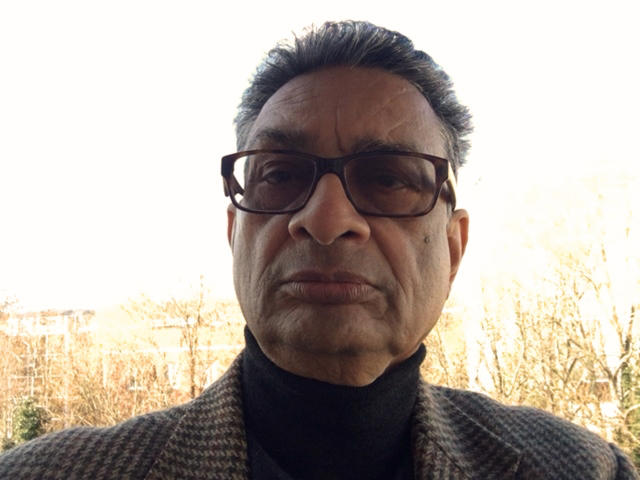 Dinesh Z. Shah
Dinesh Z. Shah
